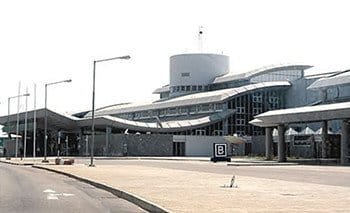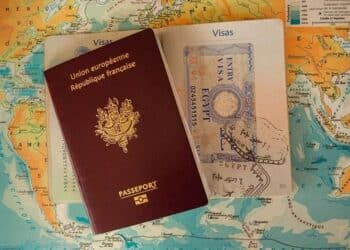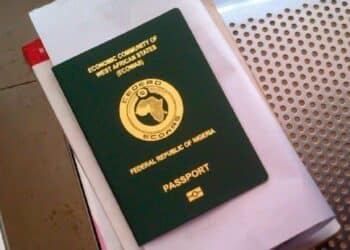NOT fewer than 15 new private and commercial airlines have applied for operating permits as the demand for air travel steadily rises in the country.
The spokesman of the Nigerian Civil Aviation Authority (NCAA), Sam Adurogboye, said the applications were being considered and as many airlines that met the laid down conditions would be granted permits to operate in Nigeria.
According to Adurogboye, the development is an indication of growth and progress in the sector.The Guardian’s investigation revealed increase in demand for air travel as airlines are either increasing frequencies or deploying bigger aircraft on routes they had considered closing months back.
While frequent fliers are enjoying the comfort of state-of-the-art airplanes, new destinations are also opening on both local and international routes nationwide. These indicators apparently align with the National Bureau of Statistics (NBS)’s year-on-year growth projection for air travel sector, recently put at 12.08 per cent.
ALSO READ: Akinboboye Introduces Sea Bikes To La Campagne Tropicana Beach Resort
The Guardian had lately observed a chain of positive activities in air travel, suggesting improved fortune for operating airlines and the sector at large. For instance, Emirates airlines that scaled down its operations to 25 per cent during the recession has just doubled its daily flights from Lagos and restored a flight daily from Abuja.
To cope with the boom, AirFrance is raising capacity on the Nigerian routes with Boeing 777 and Airbus 340 aircraft types. The wide-body state-of-the-art airplanes, besides the comfort, comes with a 10 per cent additional seat capacity en route Lagos, Abuja and Port Harcourt to Paris, France and Amsterdam in Holland, where the airline and its partner, KLM, operate.
The General Manager of Airfrance/KLM operations in Nigeria and Ghana, Michel Colleau, said the decision was business-driven as it would accommodate increase in passenger traffic on the Nigerian routes.Similarly, the Rwandan national carrier, RwandAir, is set to open Abuja operations, to add to its Lagos services. The new route is part of its strategic network plan to connect its hub in Kigali to Abuja, Bamako in Mali, Conakry in Guinea and Cape Town in South Africa.
ALSO READ: Aare Gani Adams Takes Promotion Of Yoruba Culture To Germany
On local front, Air Peace is blazing the trail in an unusual manner. Besides increasing its fleet from nine to 24 within 12 months, it has just taken the delivery of the first of three Boeing 777 aircraft for international operations. And to consolidate its local market, the airline has just opened the Kano, Yola routes that were formerly described as “unviable routes”, followed by Freetown, Banjul and Dakar services from Lagos.
Max Air, previously known for non-scheduled operations, will in the next few days commence passengers’ scheduled services. The travel agencies, who are in the downstream sector of the industry and the middle men between airlines and passengers, have also confirmed a steady improvement in passenger demand, especially on the foreign travels.
The agents and their agencies last year amassed not less than N503.3 billion ($1.4 billion) in travel ticket sales alone, a significant increase from 2016 figures.The agencies attributed the turnover to improved capacity of some airlines and upward review of official exchange rate for aviation from N306 to N359.5 per dollar.
ALSO READ: Nigeria Signs Agreement With UNWTO To Host African Tourism Ministers’ Meeting
The President of the National Association of Nigerian Travel Agencies (NANTA), Bernard Bankole, said notwithstanding the challenges with foreign exchange, stuck funds and six-week closure of the Abuja airport in 2017, operations of the airlines relatively picked, with the firms either restoring suspended operations or increasing capacity on established routes.
Bankole noted that there is a lot of money around the air travel business because of the “entrenched travel culture” among Nigerians. “We have so developed the travelling culture that Nigerians cannot just afford not to travel, move around and see new places. It is a global trend and Nigeria is not known to reject the norm. That is why travel has become our culture.
“I know quite a lot of families, rich or poor, that are already used to travelling during summer. It is a thing of pride for the spouse and children. So, that alone is a ready-made market and can cause the increase that we have been seeing,” he said.An expert in the sector, Group Capt. John Ojikutu (rtd), however, disagreed with the growth claims, even as he faulted the NBS’s 12.08 per cent growth in the air travel sector.
ALSO READ: NASS Commends Folorusho Coker’s Domestic Tourism Promotion Drives
NBS report on Nigeria’s Gross Domestic Product in fourth quarter of 2017 shows that the fastest growing activities in the quarter were road transport at a rate of 27.23 per cent and air transport at a rate of 12.08 per cent year-on-year.
Ojikutu yesterday told The Guardian that the projection and the said growth did not reflect the realities of travel demands in the sector, year-on-year.For instance, statistics released by regulatory agencies for 2016 shows a drop of about one million compared to people that travelled in 2015. Traffic of 2017 further dropped by about four million compared to the previous year.
ALSO READ: UNWTO Deepens Tourism Cooperation With European Union
“The same goes for ticket sales of N330 billion declared in 2017 compared to 2016’s N385 billion. I have already questioned the figures even because they show 50 per cent difference from figures of NANTA and the International Air Transport Association (IATA). So, if the passenger traffic is dropping, where is the growth coming from? Growth must come from earnings of airlines and earning from passengers,” he said.










